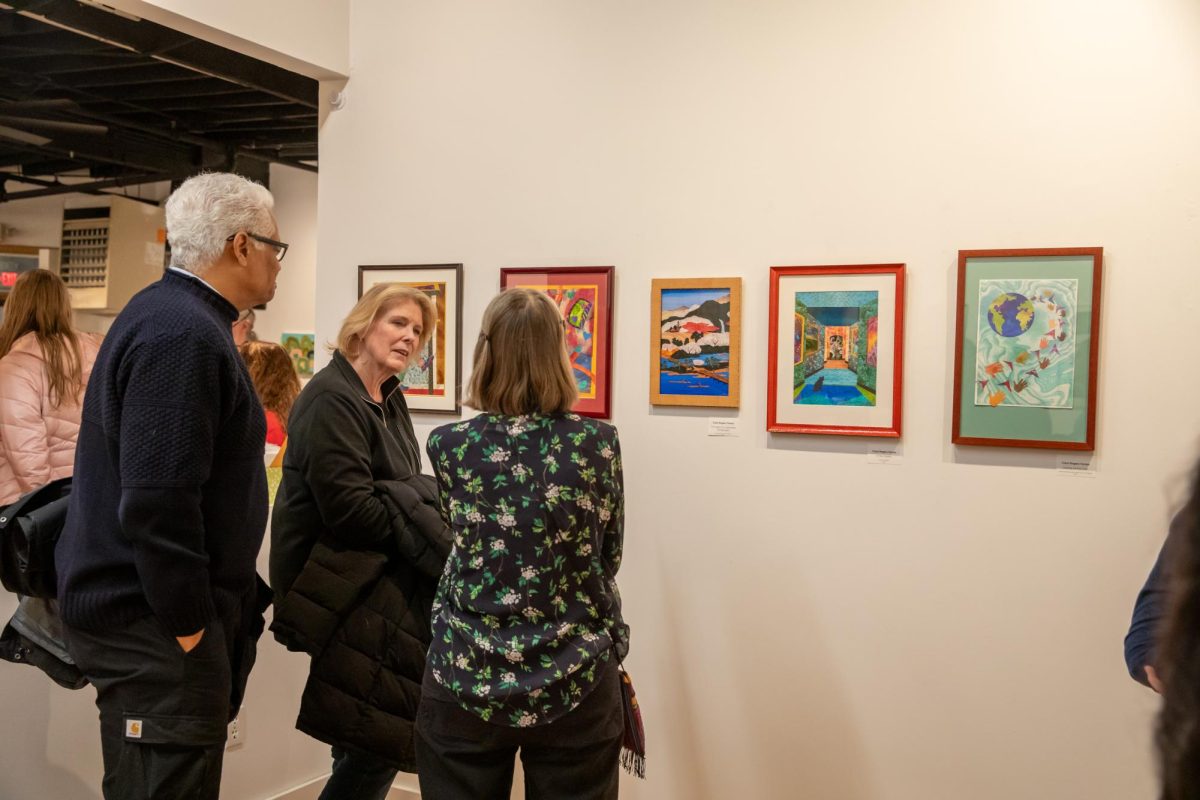While some spent St. Patrick’s Day celebrating on frat row, others chose to get cozy in Pillsbury Hall for the Creative Writing program’s annual First Books Reading.
The event, which featured Michael Kleber-Diggs, Abbey Mei Otis and Marco Wilkinson, took place on Thursday evening and was sponsored by the Walter Nathan Literary Initiatives, a recently established fund supporting the University of Minnesota’s Creative Writing department.
Each writer read from diverse bodies of work that explore themes such as familial relationships, class disparity, friendship and immigration. Kleber-Diggs, a poet, essayist and University graduate, was the first author to read, diving immediately into an emotional poem about the loss of his father by gunshot wound. “I learned death travels at 2,500 feet per second,” he read somberly to a silent crowd of attendees.
The poems read by Kleber-Diggs are all featured in the author’s prizewinning debut poetry collection “Worldly Things.” This collection was published by Milkweed Editions — a local nonprofit publisher — in 2021 and has since received national acclaim. It is currently a finalist for the 2022 Minnesota Book Award, of which the winner will be announced at a ceremony in April.
Kleber-Diggs’ poetry takes fragments of thought and experience and intertwines them into one expansive narrative. During the reading, the audience was able to get an intimate glimpse into the poet’s life. Although the nature of the poems was obviously personal, it was also easy to get introspective, especially through the relatable topic of complicated, often fragmented parent-child relationships.
The main takeaway from Kleber-Diggs’ performance? “Those who love us can destroy us,” he said.
Next, Macalester professor Abbey Mei Otis stepped up to the microphone and expressed her gratitude towards being involved in another live event after the pandemic disrupted all in-person author events. She read “Rich People,” a grotesque exploration of wealth and class that is featured in her short story collection “Alien Virus Love Disaster.”
Otis’ writing conveys a sense of unease through her descriptions of bodies and spaces. “I find grounding in amplifying the unsettling,” Otis said.
“Rich People” in particular explores the sense of “sneaking into places where you don’t feel like you belong” with body horror and absurd imagery. The story is vivid, strange and satisfying.
During the reading, Otis drew the audience in through hand gestures and vocal inflection to match her words. There is something undeniably special in hearing an author’s words right from their mouth. The experience feels more grounding than reading from a page where the author is a concept rather than a person.
Wilkinson was the third and final writer to share work from his memoir “Madder,” which was also published locally by Coffee House Press. The book is his personal exploration of discovering his own life story, describing his “wormhole history” that is the result of an immigrant mother and an absent father.
As a horticulturist, Wilkinson uses his extensive knowledge of plants to paint a picture of his life. His memoir speaks mostly of weeds, the overachievers that can find a home anywhere. ”I have an affinity for things that are out of place,” he explained. The excerpts he read explored anger, religion, growth and love with little bits of Spanish fluttered in to pay homage to his own Uruguayan roots.
The evening ended with a short Q&A session where the three authors discussed what surprised them about the publishing industry, the mental process of writing a book and how to get traction when publishing your work. But, as Wilkinson reassuringly explained, “traction or not, a book has a life of its own.”
Though each displayed their own unique skill set, Kleber-Diggs, Otis and Wilkinson have at least one thing in common: they are not only talented writers, but also moving speakers who inspire self-reflection. Sometimes, hearing the confident voice of others is enough to encourage you to look inward and find your own.














